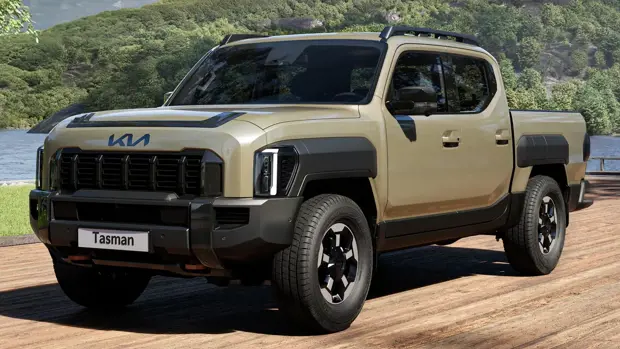Kia reveals new Tasman pick-up

Kia has pulled the covers off its all-new Kia Tasman pick-up, which it is marketing as a direct rival to the Ford Ranger and Toyota Hilux.
The chunky double cab is Kia’s first pick-up and is expected to sell strongly in Australia, Thailand and South Africa.
But initially, the Kia Tasman won’t be sold in the UK, where Kia is very much focused on growing its electric model range.
That’s because there are only two engine options from launch – a 2.5-litre turbocharged petrol with 277bhp and a 2.2-litre diesel with 207bhp.
The diesel model has a heavy-duty 3500kg towing rating. Both engines are married with an eight-speed automatic transmission, with a six-speed manual option. Two and four-wheel drive models will be produced.
The truck has an impressive payload of 1195kg and a bed that’s 1512mm long and 1572mm wide, making it the ideal rival to the Ford Ranger in both size and capability.
Inside, it gets the same triple-touchscreen infotainment system as the Kia's cars, with chunky controls and hard-wearing seat materials.
Kia has said it won’t bring the Kia Tasman over to the UK immediately despite being launched as a right-hand drive model in Australia and South Africa, but remains tight-lipped about whether it may come here in the future, or if an electric version is on the horizon.

